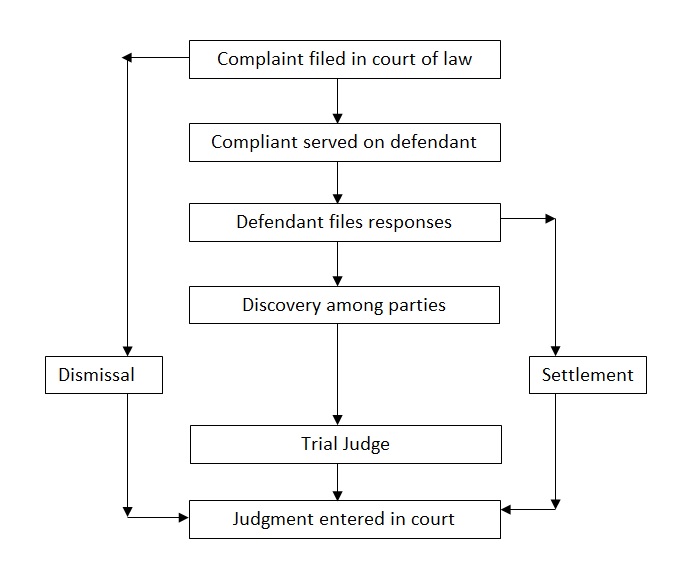Case Analysis
Walton’s Stores (Interstate) Ltd v Maher (1988) 164 CLR 387 3.
Identification of the Area of Law the Case is Dealing With
The area of law that the case is dealing with is under a broad category of civil law specifically under the contract sub-category. This case is classified under civil case since it is intended to uphold the rights of the parties concerned. In addition, the case falls under civil cases since it was brought to the court by individual parties but not by the state as is the case in criminal cases. Nonetheless, the case is further proved to be under the civil case as it only seeks a balance of probability to have proof in the case.
In addition, the case is classified under the contract sub-category of civil cases since it entails an agreement between two parties that was intended to bind the two parties. Therefore, it was brought to court to seek redress due to fundamental mistakes made by both contract parties.
The main facts and the legal questions/issues raised by those facts
Main facts on the part of the respondent
During cross-examination, the respondent Mr. Maher expressed several legal facts. For instance, it was extremely difficult to ascertain whether the respondents believed that the contract was in existence. Moreover, the respondents mistakenly assumed that there was already an agreement that was binding between the two parties (Gibson, Fraser, 2009). Therefore, this made the respondent further assume that the amendments made on the
contract were acceptable to the other party (appellant), and in so doing, the contract exchange was just for formality.
Main facts on the part of the appellant
On the other hand, there existed several legal facts on the part of the appellant. For instance, the appellant failed to make communication on the refusal of the amendments made to the agreement. Therefore, this raised another main fact that the appellant agreed to this amendment which made the respondent believe that the exchange will just take shape as a matter of course.
Create a diagram or flow chart of all of the legal parties, the progress of the case through the legal system.

Majority/minority judges’ decision and rational
There were several majority and minority judges’ decisions made in Walton’s stores (interstate) ltd v Maher case. For instance, the Court of Appeal judges arrived at the decision that the appellant was obligated to inform the respondent concerning the assumption that a contract had been done or otherwise indicate that the assumption of binding of the contract was not the official position of their agreement. About this decision, it is imperative to acknowledge that the judges were using the rationale as per 54A of the NSW Conveyancing Act which requires that a lease of a sale contract of land should not be enforceable unless written evidence is provided (Gibson, Fraser, 2009). Therefore, it should not preclude obtaining relief by the plaintiff.
Mason J and Wilson J decision and rational
Nonetheless, on the same issue of assumption, these judges of the lower courts used estoppels of the common law rationale. The assumption by the defendant that the agreement was already exchanged and therefore not informing the plaintiff was legally wrong according to the two judges. The defendant was therefore estopped to accept the exchange of the contract on a matter of common law.
Brennan J decision and Rationale
The judge held that the plaintiff’s position was based on three factors. These factors include the expectation that the two parties involved in this agreement would do some exchange, contract exchange assumption by the parties, and that there was already a binding agreement whether it was exchanged or not. For that matter, the judge’s decision was based on the rationale of estoppel in pais which holds that the side of the agreement which has led to assuming to want the other to apply the same supposition is estopped from affirming or inducing a different opinion.
The Process Followed in Finding the Case
All court proceedings in a court of law are documented and archived for future use or references. Therefore, in the process of finding the case in question, the most important aspect was to know the title or the number of the case as it facilitated its retrieval from the court’s databases. About Walton’s Stores (Interstate) Ltd v Maher (1988) 164 CLR 387 3, it was relatively important to know the name of the parties, that is the plaintiff and the defendant to retrieve all information relating to the case that was recorded including proceedings of the court.
Challenges Encountered when Answering the Questions
However, several challenges were encountered in answering the question. This includes some legal jargon that was used by the source materials that were consulted. This forced additional research to be done to fully understand the meaning of these words to comprehend their usage.
Conclusion
To wind up, it is important to acknowledge that in matters of law, there are no assumptions that are supposed to be made. For instance, Gibson and Fraser (2009) in chapter six-note both parties at one point or another party in a contract hold some assumptions in their agreement without necessarily communicating them which is legally detrimental in their relationship.
References
Gibson, A. & Fraser, D. (2009) Business law. 4th ed. Australia: Pearson Education. Walton’s Stores (Interstate) Ltd v Maher (1988) 164 CLR 387 3.